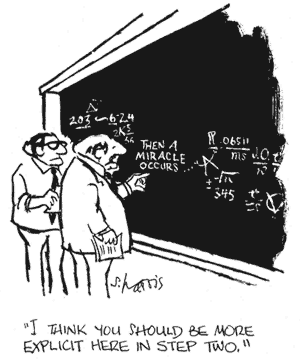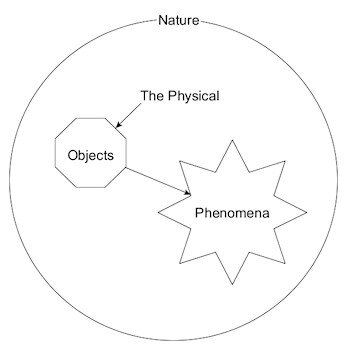marduk
quelling chaos since 2352BC
Emergence from a physical process would be by definition itself a physical process. Therefore, there would be no dualism in play.Strong emergence would be an example of non-supernatural dualism.
Consciousness “emerging” from physical processes in a way that can’t be predicted or explained and, if epiphenominalism isnt claimed, interacting with physical processes in ways that likewise can’t be predicted or explained.
Bosons emerge from a physical process, and they themselves are physical, even though they have zero mass. For example.
The basic equations of the unified theory correctly describe the electroweak force and its associated force-carrying particles, namely the photon, and the W and Z bosons, except for a major glitch. All of these particles emerge without a mass. While this is true for the photon, we know that the W and Z have mass, nearly 100 times that of a proton. Fortunately, theorists Robert Brout, François Englert and Peter Higgs made a proposal that was to solve this problem. What we now call the Brout-Englert-Higgs mechanism gives a mass to the W and Z when they interact with an invisible field, now called the “Higgs field”, which pervades the universe.
The Higgs boson
Non-predictability also does not imply a non-physical process. The three-body problem is a perfect example of this:
There is no general analytical solution to the three-body problem given by simple algebraic expressions and integrals.[1] Moreover, the motion of three bodies is generally non-repeating, except in special cases.

Three-body problem - Wikipedia
Godel's incompleteness theorem is another example that was totally unpredicted - and proves mathematical proofs itself are unpredictable, even with perfect domain knowledge for the underlying structures of math/number theory. There are islands of mathematical truths that cannot be derived mathematically - only guessed at and then proven. And we'll never understand them all, because they're uncountably infinite.
But none of that invalidates number theory, or implies there is a form of math that is not math, if you get my drift.
There are other forms of non-predictability that are interesting - chaos theory, quantum mechanics, etc. None of them imply dualism, though.



